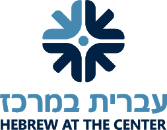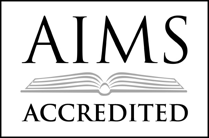Milton selected for Fellowship on Teaching and Learning Rabbinic Literature
November 8, 2018 by
Milton is proud to have been one of several select schools across North America to participate in the Legacy Heritage Instructional Leadership Institute (LHILI), working in close collaboration with staff at the William Davidson Graduate School of Jewish Education of The Jewish Theological Seminary (JTS). Participation in this two-year fellowship (2018-2020 academic years) will enhance the teaching and learning of rabbinic literature by offering faculty intensive and distinctive professional learning. The initiative includes school visits by an educational consultant and rabbinical advisor, as well as conferences and learning institutes. Division Directors Melissa Davis and Arielle Derby, and Instructional Leader Vered Goldstein will lead the faculty at Milton in this endeavor. The first phase of the fellowship will focus on Grades Pre-K to 2, with application in Grades 3-5 to follow in the second phase.
Over the summer, Milton academic leaders participated in an opening seminar with leaders from other schools. This fall, Division Directors and faculty in Grades Pre-K to 2 engaged in full-day workshops led by our LHILI educational consultant. “Working with the teachers at Milton has been a delight − they are thoughtful, sensitive, creative, and enthusiastic. I look forward to seeing the amazing things they will do to enrich and enhance an already strong curriculum through their exploration of original sources from the rabbinic tradition and their use of the Rabbinics standards,” said Cindy Reich, Talmud Torah Educator Consultant with the Legacy Heritage Instructional Leadership Institute and the Davidson Graduate School of Education at JTS.
The opportunities afforded through this fellowship enable our academic directors and faculty to work in collaboration with rabbinic and educational experts, delving deeply into a study of Mishnah, Gemara, and the rest of the rabbinical corpus. As part of the standards and benchmarks approach, they will create a consistent framework that provides scope and sequencing of topics and skills necessary for accessing rabbinic literature and make connections to other elements of the academic program. “Our goal is to provide educators and students with opportunities for deep learning and everyday engagement with Rabbinics, and to integrate the learning throughout the program. We are excited about the positive impact this will have on our Judaic Studies program as well as other disciplines. The Early Childhood division is currently unpacking texts related to listening and Shema; we plan to make deep connections to our Second Step lessons on listening,” said Early Childhood Director Melissa Davis. “The approach of this fellowship for educators is special with its emphasis on deep learning, grappling with Rabbinic literature, exploring personal meaning and connections, and most important, encouraging teachers to make time to wonder, explore, let their ideas percolate and collaborate. The design of this program respects teachers as learners, and off course, that will trickle down to the classroom experience of the children,” added Elementary School Director Arielle Derby.
At Milton, we aspire and work toward Jewish learning that is formative and transformative, shaping identity, informing choices and behavior, and forming connections across our diverse community and across generations. The focus of our work with LHILI and JTS over the coming two years will be in two areas − Jewish identity and practice, and studying rabbinic literature as many voices in conversation. Over the course of the fellowship, our faculty will re-examine and renew our teaching practices and engage the students in meaningful text study. We will share more details about the learning and implementation at Milton throughout the next two years.
“We are thrilled for the opportunity to work with Milton Gottesman Jewish Day School,” said Charlotte Abramson, director of the program at JTS. “Our primary goal is to strengthen the quality of learning by providing a professional learning program for day school educators to refine their instructional leadership practices to best serve their students and school community.” The Davidson School of JTS supports teachers and leaders in participating schools as they develop a coherent vision for teaching and learning rabbinic literature and a methodology to do so. This methodology encourages and fosters the development of higher order learning skills, such as innovative thinking, effective communication, exploration of text for meaning, and the development of an appreciation of Rabbinics as an inspiring resource that informs values and ethics, identity, connection to God and others, and ways of experiencing the world. The William Davidson Graduate School of Jewish Education of JTS is a pluralistic school of Jewish education, granting graduate-level degrees in Jewish education and providing professional development and curricula programs to educators currently in the field.






